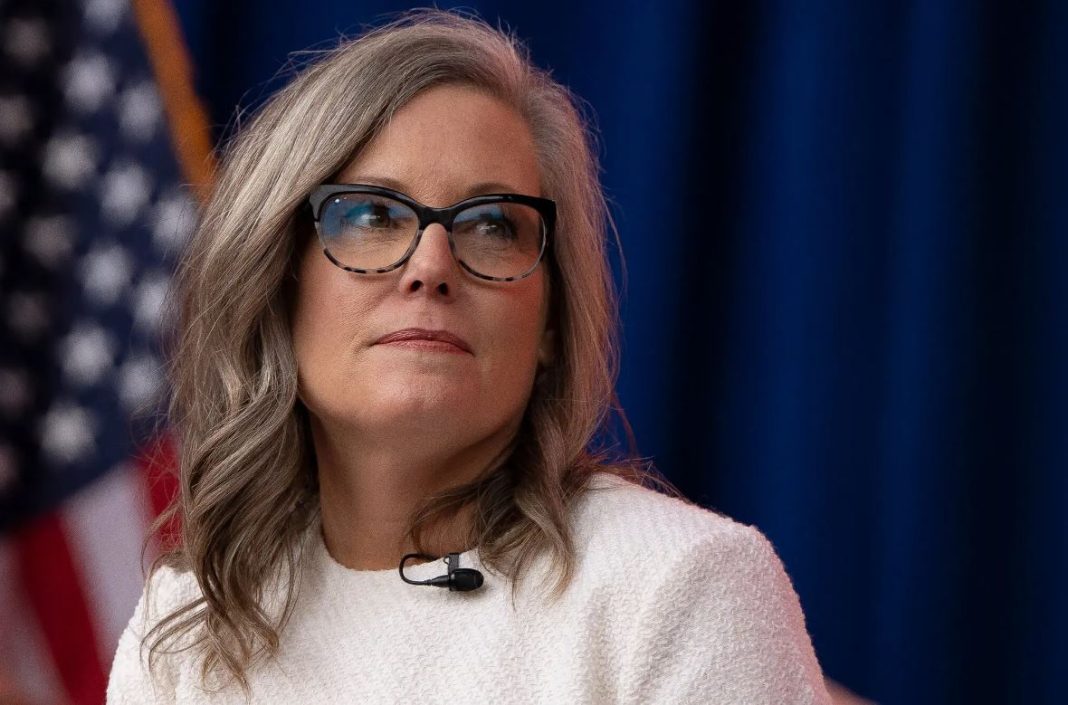Arizona Governor Katie Hobbs, a Democrat, delivered her first veto of the year on Monday, rejecting a bill that would have empowered state police to arrest undocumented immigrants. This move adds to a series of clashes between Hobbs and the Republican-dominated Arizona Legislature, as she previously vetoed numerous bills related to abortion, elections, and L.G.B.T.Q. rights in 2023.
The veto underscores the heightened tensions surrounding border security in an election year, with border states grappling with a surge in migrant crossings. While expressing frustration with the Biden administration’s handling of the border crisis, Hobbs deemed the Republican-backed bill anti-immigrant and potentially unconstitutional.
Dubbed the Arizona Border Invasion Act, the bill aimed to criminalize border crossings without authorization, making it a misdemeanor for initial crossings and a felony for subsequent crossings by individuals previously deported or ordered to leave. Additionally, it would have granted state law enforcement the authority to detain migrants and allowed Arizona judges to order deportations.
Hobbs criticized the measure, asserting that it failed to effectively secure the border and would burden communities, businesses, and law enforcement agencies in the state. She raised concerns about its potential violation of the U.S. Constitution, as it encroached on the federal government’s exclusive authority to arrest and deport immigrants.
The bill’s resemblance to a Texas law, currently blocked in court, triggered a legal showdown between the Biden administration and Texas officials over immigration policy enforcement. The Supreme Court signaled its intention to intervene in the dispute between Texas and the federal government.
With no Democratic support, the Arizona measure passed amid claims of an “emergency” situation fueled by what Republicans labeled as “Joe Biden’s border invasion.” They argued that the influx of migrants, including individuals from diverse backgrounds, crossing the border exacerbated law enforcement strains, brought about violent crime, and facilitated fentanyl trafficking into the state.
However, federal officials and Democrats countered these assertions, highlighting that most fentanyl smuggling occurs through legal ports of entry by U.S. citizens. They also pointed to federal crime statistics indicating that border towns in Texas are safer than many non-border cities.
Republicans in Arizona condemned Hobbs’s veto, characterizing it as contributing to chaos and perpetuating the alleged border crisis. State Senator Janae Shamp, a bill sponsor, criticized Hobbs, aligning her actions with what she termed as Biden’s complicity in an “open border crisis.”
Conversely, Latino advocacy group Living United for Change in Arizona praised Hobbs’s decision, labeling the bill one of the most extreme and racist anti-immigrant measures in recent years. The group likened it to Arizona’s controversial “show me your papers” law from 2010, which mandated state law enforcement to investigate the immigration status of individuals suspected of being undocumented.
Alejandra Gomez, the group’s executive director, commended Hobbs for rejecting the bill, viewing it as a rejection of racism, hate, and misguided policies.
Hobbs’s veto represents a significant development in the ongoing debate over immigration enforcement and border security policies, underscoring the complexities and divisions surrounding these contentious issues in Arizona and across the nation.

